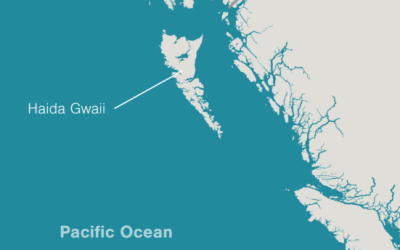WINNIPEG– The Frontier Centre for Public Policy, along with the International Property Rights Alliance, today released the 2010 International Property Rights Index. The Index, measures the protection of property rights in 125 countries.
On a ranking of one to ten—the higher scores reflecting a greater protection of property—worldwide scores ranged from Finland with 8.6, to Bangladesh with a score of just 2.9. Canada scored 8.0 on the Index as did Germany and Ireland; all three countries thus tied for 12th position.
The scores are based on ten measurements ranging in three broad subject areas:
- The legal and political environment (as it relates to judicial independence, rule of law, political stability and degree of corruption);
- Physical property rights (protection of physical property rights, ease of registration of property, and access to loans);
- Intellectual property rights (protection of intellectual property rights, patent protection, and copyright policy)
Results for Canada:
In 2010, Canada maintained its position as the highest ranking country in the Western hemisphere, with increased scores for increased judicial Independence and the protection of physical property. Canada was 12th, while the United States scored lower at 15th. On the negative side for Canada, copyright piracy levels continue to be somewhat high for a well developed country – estimated at an average of 33 percent.
Frontier’s director of research, Mark Milke, notes Canada’s showing occurred in the absence of constitutional protection for private property. “Canada is lucky to have a certain historical and legal framework of respect for property rights. However, and regrettably, property rights are not yet a guaranteed right. As such, the protection of property in Canada is akin to rule by a monarch. You’re lucky if the king or queen is benevolent, but out of luck if the monarch is unwise, unjust or foolish.”
In Canada, governments can still expropriate at will with no constitutional protection for family assets. This has occurred over the decades in almost every Canadian province notes Milke.
Examples of property right infringement in Canada:
- In 2005, in British Columbia, the City of Coquitlam widened a local road which caused the nearby creek to encroach another 24 metres upon a privately-owned parcel of land. The entire 1.5 acre parcel was eventually declared “sterile” which meant no development could occur. The land was thus worth little in practical terms for an area that previously could have been subdivided into ten lots. Coquitlam offered compensation – $38,000 – but only for the portion of the land altered by the stream. No compensation was offered for the rest of the property declared sterile.
- In Manitoba, in 2007, the Rural Municipality of Ellice attempted to expropriate a significant portion of an 87 year-old farmer’s farm that had been in his possession since 1955. The attempted expropriation was not an incidental occurrence but the first test of a Manitoba Municipal Government Act, rewritten in 1996 to expand the uses for which municipalities can expropriate land. The vaguely written law allows municipalities to expropriate land for initiatives like tourism operations that would compete with private land uses
- In 2005, the Government of Ontario introduced a 1.8 million acre “Green Belt” around greater Toronto but offered no compensation for the portion of 1.8 million acres of private land which it put off limits to development.
The above examples and more show the importance of property rights, notes Milke. “Property protection shelters the savings and investments of families, be it their home or other property; property rights also protect risk-taking by individuals and companies, activity that is critical to a country’s general prosperity. Canada needs a constitutional amendment to ensure property rights become a Charter right.”
The 2010 International Property Rights Index can be downloaded here:
For more information and to arrange an interview, media (only) should contact:
Mark Milke
Director of Research
403-630-0875 (Cell)
Gary Slywchuk
Troy Media Corporation


